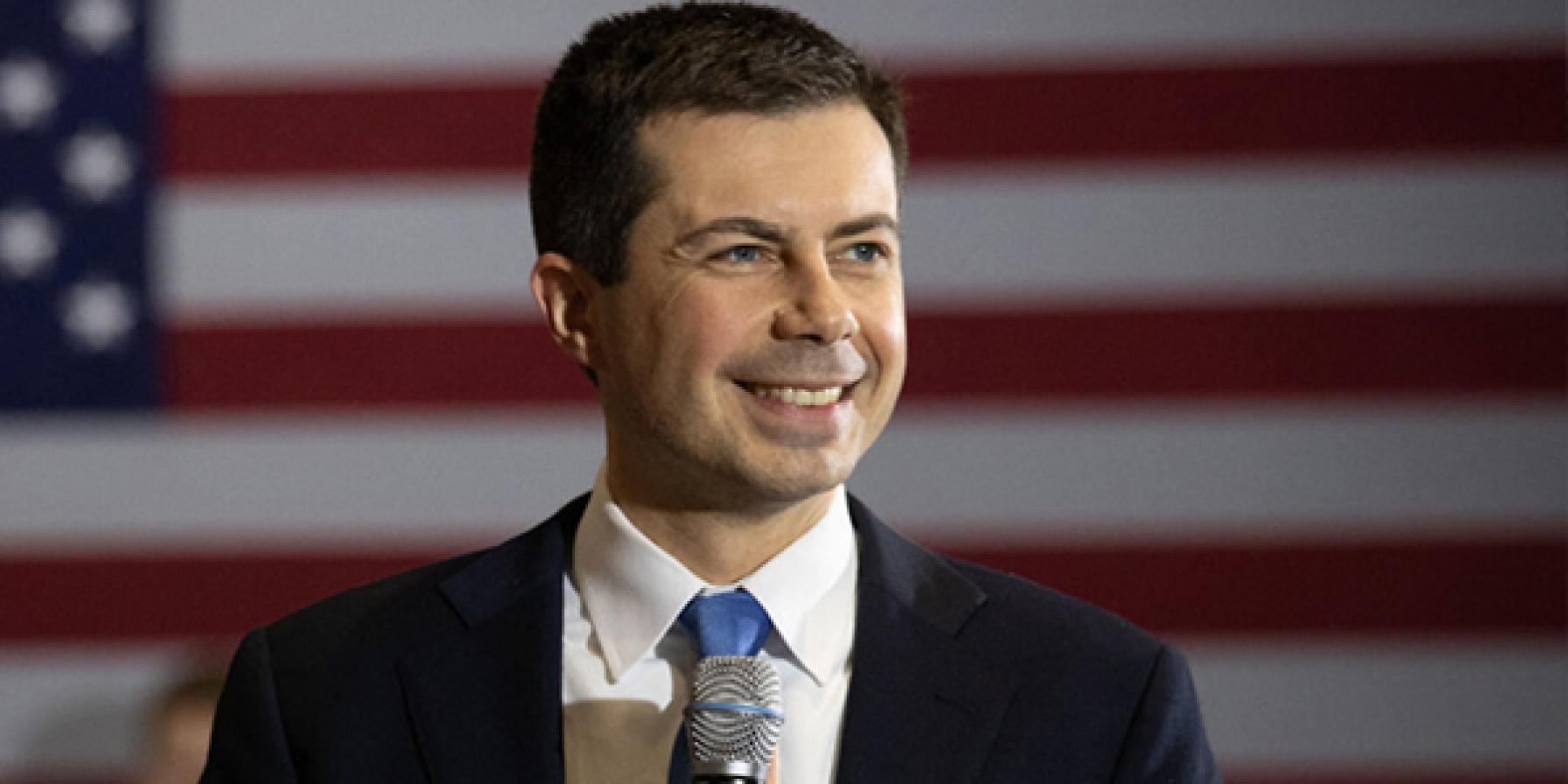- Home
- IBTTA Insights
- Biden’s Nominee for Secretary of US DOT Would Lead Build Back Better Efforts
Stories
Biden’s Nominee for Secretary of US DOT Would Lead Build Back Better Efforts


With President-elect Joe Biden’s inauguration just weeks away, the early indications are that infrastructure will be at the heart of the new administration’s economic strategy.
Biden’s selection of former South Bend, Indiana mayor Pete Buttigieg, for transportation secretary, will be at the center of the action.
In the narrow window of time between Buttigieg’s nomination and the holiday break, there wasn’t much time for reporting or analysis. But the initial soundings indicated continuing interest in the major, bipartisan infrastructure program that eluded the federal government in recent years, with a looming deadline to get started on transportation funding and financing.
“America has given this administration a mandate to build back better,” Buttigieg said December 16, and “step one of building back better is literally to build.”
“Pete’s going to help build back better with jobs and hope, with vision and execution,” Biden added at an event in Wilmington, Delaware. “We selected Pete for Transportation because the department is at the intersection of some of our most ambitious plans.”
Counting the days to September 30
The new administration takes office with a familiar deadline looming: after an eleventh-hour extension to Fixing America’s Surface Transportation (FAST) Act funding last fall, the federal program is set to expire at midnight September 30. We haven’t heard of anyone setting up a countdown clock to the reauthorization deadline, as a group of equipment distributors did in 2014—not yet at least. But everyone knows the deadline is tight, this year’s Congressional agenda will be packed, and the push for a strong economic recovery coming out of the pandemic will only add to the pressure and momentum for solutions that works.
Bloomberg News picked up mixed reviews on whether the pieces of the puzzle will fall into place this time.
“Infrastructure is a long overdue priority,” said Neil Bradley, executive vice president and chief policy officer at the U.S. Chamber of Commerce. “The incoming Biden team tells us they’re going to make that a priority in the first six months, and I think this is confirmation that they are indeed going to put a lot of resources and the right personnel behind it.”
“Between the pay-for problems and general Republican reluctance to get on board with some of the major climate provisions, those are impediments to bipartisan support,” countered Jeff Davis, senior fellow at the Eno Center for Transportation.
But “there’s no disputing the reality that America’s infrastructure network is central to our social and economic well-being,” cautioned former U.S. assistant transportation secretary Gregory Winfree, now director of the Texas A&M Transportation Institute, in a post for The Hill last fall. “The only real debate to be had is over how best to fund, operate and maintain it. Add that to our list of urgent national concerns, because even with a one-year funding extension, we don’t have the luxury of abundant time in which to act.”
‘A dash of star power’
Between the commentary that followed Buttigieg’s nomination, and his own transportation policies and commitments during last year’s Democratic presidential primary, Buttigieg may well emerge as a key ingredient in shifting the conversation.
“The choice of Buttigieg, who sought the Democratic presidential nomination and has an ardent following among some members of the party, will bring a dash of star power to what is normally a staid, if important, department,” the Washington Post wrote last month.
He’ll also bring an agenda for transportation renewal that he laid out during his run for the Democratic presidential nomination last year. It included:
- A commitment to “make the Highway Trust Fund solvent”;
- Dedicated funding to repair half of the country’s roads in poor condition and structurally deficient bridges by 2030;
- New funding for road safety based on a national Vision Zero goal;
- $6 billion for new electric vehicle charging infrastructure;
- Significant new funding for transit and rail connectivity.
During the primary, Buttigieg specifically connected national transportation funding to local priorities, jobs and climate change adaptation.
“As a former mayor, I know that priority-based budgets made locally are better than budget-based priorities set in Washington,” he wrote last year. “That’s why we will ensure that federal funds go to the cities, counties, tribes, towns and states that need resources, but otherwise already stand prepared to create good jobs and combat climate change by investing in infrastructure.”
Click here to download your copy of IBTTA’s Grassroots Toll Kit.

Joining IBTTA connects you to a global community of transportation professionals, offering unmatched opportunities for networking, knowledge-sharing, and collaborative innovation in the tolling and transportation sector.
Follow IBTTA on social media for real-time updates on transportation trends and collaborative opportunities.





